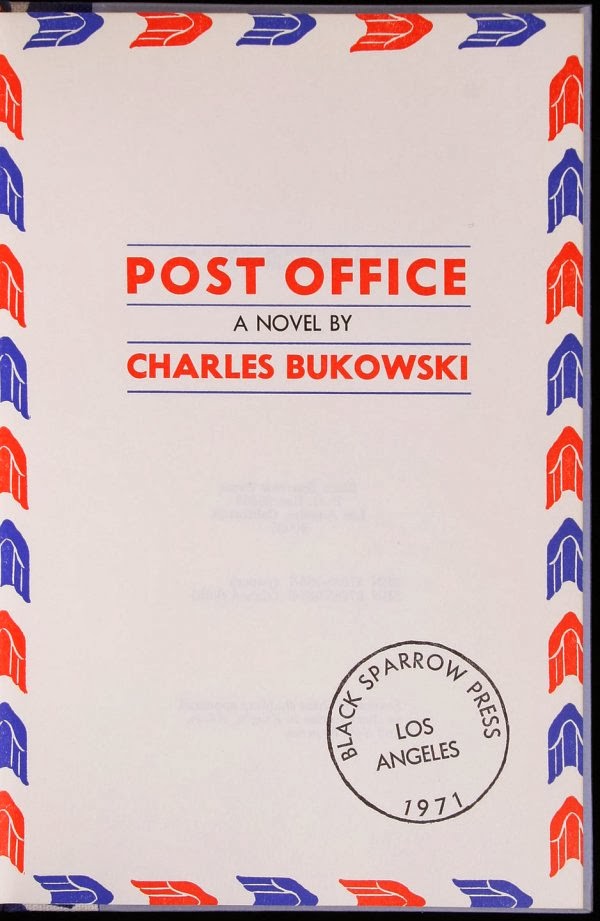Have you ever said, “I hate this dam job!” Unless you are a liar I am going to assume your answer to that question is “No shit.” Now you may be saying what the hell does any of this have to do with a book I should read. The answer is: everything. The book in question is called Post Office, Charles Bukowski’s screed against the drudgery of stupid meaningless work — work that does nothing but make other people more money than they need, or should want. Through his alter ego Henry Chanaski, Bukowski gives the middle finger to the idea of going to some place he hates to do something he does not see any real purpose for, just to make money. Chanaski is able to laugh wearily at the bleak absurdity of his station in life: the back-breaking labor, the endless walking, the joyless run-ins with idiot people on his route, the crazed and vicious dogs, the paper-pushing bureaucrats and their pointless rules. Henry Chinaski is a classic antihero, hard around the edges, hard to look at and even uglier on the inside. It takes an ugly man to deliver an ugly truth: all is suffering, and then you die, so enjoy yourself, it’s later than you think. I think his biggest problem Bukowski had with things like working for the post office was that it was labeled “work” to make it not sound like what it really is: making people into machines to make money for someone else. I think he thought something that deserved the title of work was art, or something else people do to be creative and say something about the human condition. Post Office does just that. It is a bitter glimpse into the world of the average working person through the eyes of one of the most honest poets in history, a defiant artist living in a society that does not respect people like him. So he dealt with it the best way he knew how: by drinking himself into oblivion. And also by creating art. He once said that “the difference between life and art is art is more bearable.” And what art couldn’t do, the drinking could. Despite all that, or perhaps because of it, Charles Bukowski was one of the greatest writers of the 20th Century.— MICHAEL ISOM

